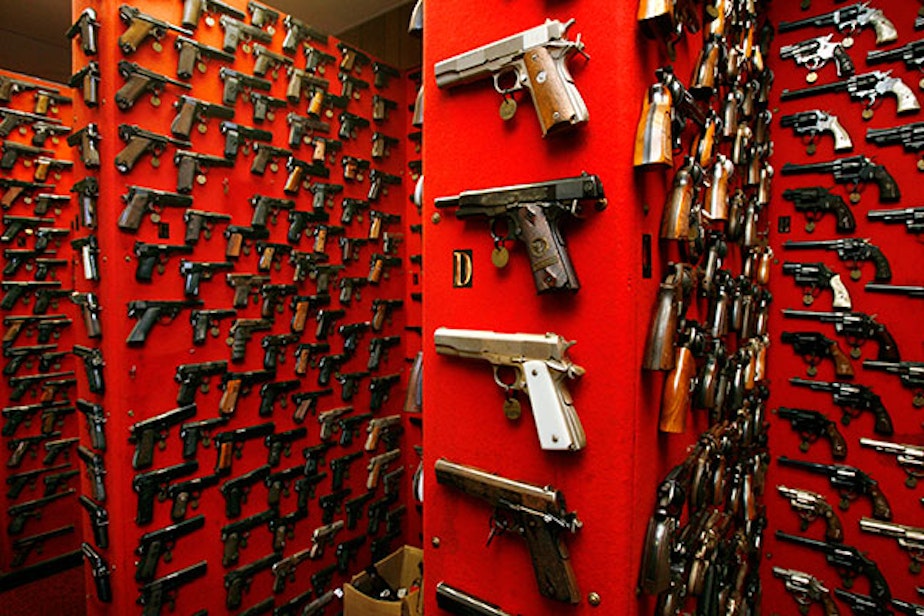Could A New Kind Of Gun Law Avert Mass Shootings?

More mental health treatment and gun control won't necessarily prevent mass shootings, but a new California law might help, says a public health researcher.
When a tragedy like the Roseburg shooting unfolds, the public conversation often veers into those two channels: mental health care and gun control.
Emma "Beth" McGinty, an assistant professor in the Johns Hopkins Bloomberg School of Public Health in Baltimore, told KUOW’s Ross Reynolds there are several reasons for that.
Listen: After A School Shooting: 'Fear And Negativity And Bewilderment'
“One, several mass shooters in the past 10 years have had untreated serious mental illnesses, psychotic conditions like schizophrenia and bipolar disorder,” McGinty said.
“Second, we often in the national dialogue have groups that would like to turn the attention away from guns, which are a very politically controversial topic in the U.S. So focusing the discussion on mental illness as opposed to firearms is in the interest of the some of the national players in this dialogue.”
McGinty said the focus often turns on mental illness without any evidence that the person involved is in fact mentally ill.
But in general wouldn’t better treatment of mental illness and intervention help to reduce gun violence?
“I don’t think it would have a huge effect,” she said, because even people with serious and untreated mental illnesses are not at higher risk of violence than others.
Of gun violence in general, “only a small proportion, 3 to 5 percent, is caused by mental illness.”
However, she said, “In the small subset of people with serious mental illnesses who are at risk of violence, we do see them overrepresented among mass shooters.”
McGinty said one problem in stopping mass shootings is that they are “a relatively rare event …. And by nature that makes them unfortunately very, very difficult to predict. It is very hard to identify ahead of time who is going to be a mass shooter.”
But she said evidence suggests that firearm policies that keep guns away from high-risk individuals can be successful. She pointed to a new law set to take effect Jan. 1, 2016, in California that provides for a “gun violence restraining order.”
It allows family members, intimate partners, or those with close knowledge of the individual, such as teachers or doctors, to launch a civil restraining order process. McGinty said it’s a parallel to the domestic violence restraining order process.
They can “go to a judge and say, ‘I have a family member who is in crisis. And I am very worried about them, I'm worried that they're going to hurt themselves or someone else and they have firearms in the household.’”
The court can order the temporary removal of firearms from an individual and temporarily prohibit them from buying new firearms.
McGinty called it “a unique mechanism” that could be used “when people like some of these mass shooters are in crisis and at the highest risk of committing this type of horrific act.”
She acknowledged that Second Amendment advocates such as the National Rifle Association were likely to resist such laws.
But in California, she said, law enforcement joined the mental health community in building a coalition to support the gun violence restraining order.
“And we have recent public opinion polling data from 2014 suggesting that over 70 percent of Americans support this type of policy,” she said.

